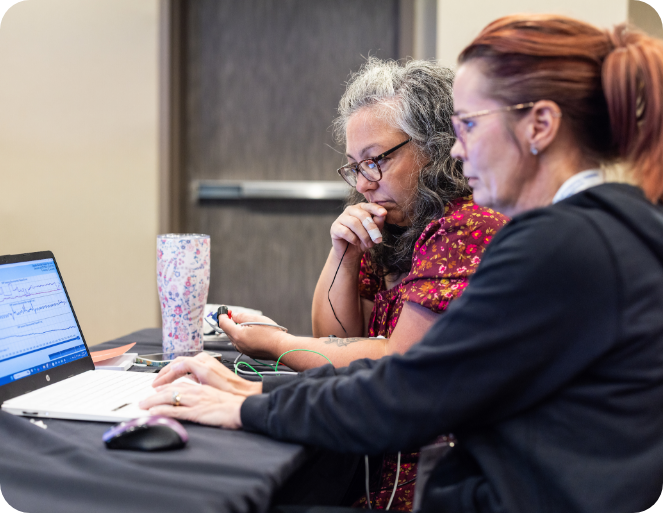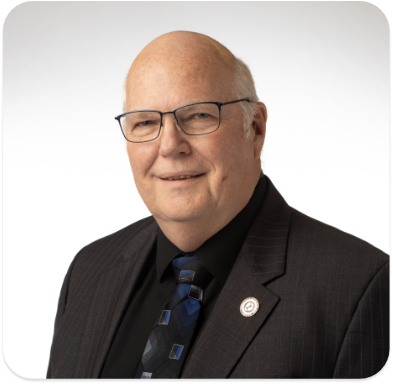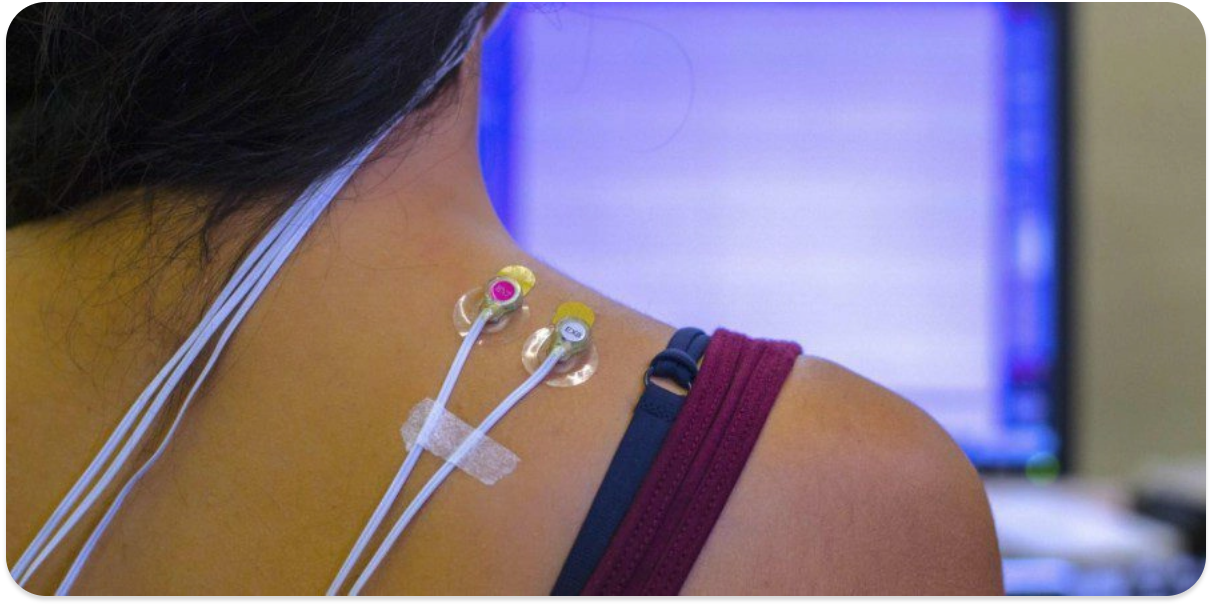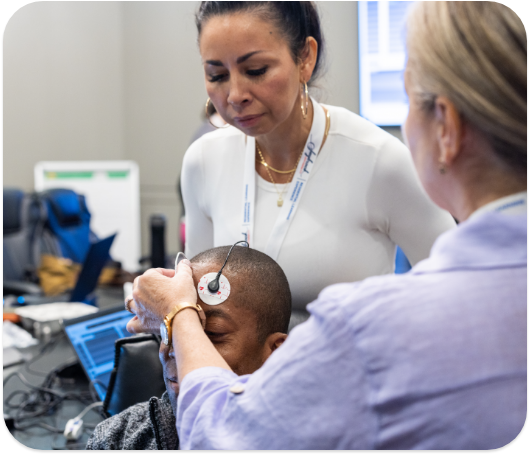Measuring Brainwaves To Reinforce Optimal States of Mind
The Certificate in Neurofeedback program explores a specialized form of biofeedback focused primarily on monitoring brainwave activity. You will gain proficiency in utilizing neurofeedback technology and protocols, including setting up equipment and analyzing neurophysiological data, to guide effective treatment for your clients.
Your clients have their own needs, goals, and conditions. The skills you pick up in this program will help you design and implement interventions for those specific needs. Ethical and professional practice should be every neurofeedback specialist’s top priority. Our hybrid online certificate program can help you develop skills in establishing professional therapeutic relationships, effectively communicating with clients, and maintaining ethical boundaries during your sessions.
All training and didactic education is designed to follow the knowledge blueprint of the Biofeedback Certification International Alliance (BCIA).
Neurofeedback Certificate Job Outcomes
Upon completion of the certificate program, you will have an enhanced skill set and deepened perspective to augment your current practice or career. Neurofeedback skills can lead to rewarding career opportunities within both public and private clinical settings. Some settings may require an additional license to practice health care.
Other Applied Psychophysiology Certificates
Interested in another certificate? We offer many programs that may align more closely with your goals:
- Biofeedback Certificate
- Clinical and Applied Hypnosis Certificate
- Stress Management Education Certificate
Please note: Students are asked to purchase their own biofeedback equipment to complete these courses. A limited number of biofeedback instruments are available for loan or rent. Please contact the department chair for further information.
Program Components
Admissions Requirements
The Neurofeedback Certificate program is open to all current Saybrook students and to others who hold a minimum of a master’s degree from an accredited university. Master’s-level students from other accredited programs are also welcome to enroll in this certificate program.
Invest in Your Future
Saybrook University remains committed to keeping higher education affordable and accessible. Our Financial Aid Department is ready to offer guidance and support in determining suitable financial assistance tailored to your needs, including potential scholarship opportunities, grants, and more.
Cost
Saybrook wants you to have the information you need to make an informed decision about your academic and career aspirations. Our cost calculator provides an estimated cost of attending Saybrook to earn your Neurofeedback Certificate.
Sample Courses
Courses required for neurofeedback students.
EEG Biofeedback: Assessment and Intervention
This course teaches the principles of recording the brain’s electrical activities through EEG, as well as other imaging techniques that pertain to psychophysiological assessments and interventions. The basic psychophysiology of the EEG signal is reviewed in relationship to educational applications and disorders (such as epilepsy and ADHD) treated with EEG biofeedback.
Neuropsychophysiology
This course covers central and peripheral nervous system anatomy and physiology and finishes with an emphasis on nervous system pathophysiology. The brain/spinal cord plexus is discussed from both anatomical and physiological perspectives concentrating on plasticity in response to changes in the external and internal environment as well as viewing the system as an interactive organ with hormonal, nerve based, and blood flow-based feedback and control systems.
Choice of either:
Quantitative Electroencephalogram as an Assessment Tool
Quantitative electroencephalogram (QEEG) has become an important technique for psychophysiological assessment of brain-based disorders. This course covers reading and artifacting the EEG record, montages, database comparisons, drug effects on the EEG, frequency analysis, spectral and topographic aspects and basic neuroanatomy and physiology, based upon Brodmann areas and anatomical structures.
Advanced EEG Biofeedback: Theoretical and Clinical Considerations
EEG Biofeedback has radically expanded over the past 10 years. As a result, the list of treatment options can seem overwhelming. Amidst the clamor of competing ideologies, manufacturers and treatment modalities, it is the responsibility of the advanced EEG biofeedback clinician to create a treatment approach that is effective and engaging for the trainee/patient/client. This class moves beyond the introduction to basic EEG feedback modalities and equipment, and into an overview of the state of the art of EEG, and the subsequent options and complex treatment decisions that are necessary in operating competently in the modern neurofeedback climate.
Stimulation Technologies
This course provides sufficient information on psychophysiological entrainment and stimulation for students to understand how various forms of physical stimulation are used to alter the brain and body’s functioning. Topics include (1) magnetic stimulation of the periphery to induce changes in peripheral blood flow, (2) magnetic stimulation of the brain to induce out of body experiences and control headaches, (3) physiological entrainment of breathing for control of hypertension, (4) basics of arousal and dysarousal, (5) review of quantitative electroencephalogram (QEEG) and heart rate variability HRV) in relation to entrainment, (6) physiology of audiovisual entrainment (AVE), (7) standard studies on AVE, (8) cognitive studies on AVE, (9) cranial electrical stimulation (CES), (10) ) transcranial direct-current stimulation (tDCS), (11) HRV - breath-work exercise, (12) programming with the DAVID session editor, (13) use of “alpha stim”-like devices to alter states of consciousness, and (14) neuromodulation including repetitive transcranial magnetic stimulation (rTMS).
Catalog
Please refer to our academic catalog for more information on the Neurofeedback Certificate program.
University Learning Experience
Our Neurofeedback Certificate program is a hybrid online program. Coursework is completed online and augmented with a five-day, in-person Residential Learning Experience (RLE). The RLE occurs at the beginning of the Fall and Spring semesters in California. Every odd-numbered year, the RLE takes place during a larger Community Learning Experience (CLE), encouraging interaction with the larger Saybrook community. In this program, you will begin your studies with a virtual Welcome Week. Welcome Week activities, including a program orientation, are held online during the week before the start of Fall and Spring semesters.

Applied Psychophysiology Faculty
Saybrook’s Applied Psychophysiology faculty are practitioner-scholars dedicated to advancing their field through continued practice and comprehensive instruction. Meet some of our faculty members below.

- President, Michigan Society for Clinical Hypnosis
- Past President, Society for Psychological Hypnosis
- Past President, American Society for Clinical Hypnosis
- Past President, Society for Clinical and Experimental Hypnosis
UNBOUND: Psychophysiology
Bridging the gap between psychological and medical science, you will explore the close interconnectedness between the brain and body as part of our psychophysiology degree programs.

Ready to Take the Next Step?
Submit an inquiry and one of our admissions specialists will connect with you to answer your questions and guide you through next steps.
























